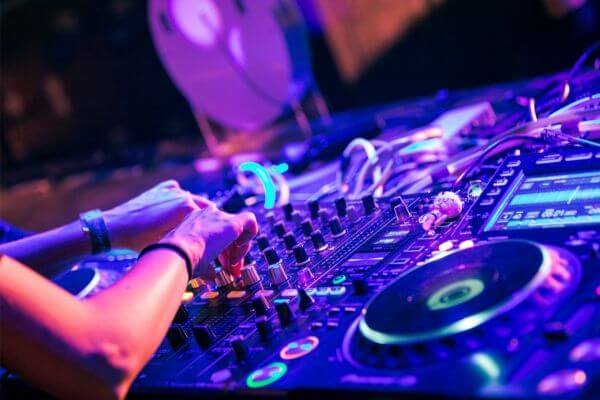How music is adapting to the digital age is a topic that has fascinated artists, fans and industry professionals around the world. With the emergence of streaming platforms, virtual reality and artificial intelligence, music has undergone drastic transformations, changing how we create, share and experience sound.
This article explores the ways in which music is adapting to the digital age, shedding light on both the opportunities and challenges brought about by technological advancements. Moreover, it delves into how these changes are shaping the industry and influencing artists, listeners, and creators alike.
Through detailed analysis, we will dive into streaming services, the influence of social media, the growth of virtual reality concerts, and the ethical implications of AI in music production. Join us as we unravel how music is adapting to the digital age, embracing the future without losing its roots.
Streaming Services Revolutionizing Music Consumption
Streaming platforms like Spotify, Apple Music, and Tidal have fundamentally changed how people access music. These services provide on-demand access to millions of songs, making it easier than ever for users to discover new artists and genres.
Thanks to personalized algorithms, listeners can enjoy curated playlists that reflect their unique tastes, demonstrating how music is adapting to the digital age through innovation.
The Role of Social Media in Music Discovery
Social media platforms such as Instagram, TikTok, and YouTube have become crucial tools for both established and emerging artists. Viral challenges and short-form videos allow musicians to reach audiences they might never have accessed otherwise.
By leveraging these platforms, music is adapting to the digital age, finding new ways to captivate listeners and connect with fans.
Artificial Intelligence in Music Production
AI technologies are transforming how music is created. From generating melodies to mastering tracks, tools like OpenAI’s Jukebox demonstrate how music is adapting to the digital age with unprecedented efficiency.
However, these advancements also raise questions about creativity and originality in the industry.
Virtual Reality Concerts The New Frontier
Virtual reality has emerged as a groundbreaking medium for live music experiences. Platforms like VRChat and Oculus allow fans to attend concerts from the comfort of their homes while still feeling immersed in the performance.
This is yet another example of how music is adapting to the digital age, reshaping live events for a global audience.
The Importance of Digital Rights Management
As the industry becomes increasingly digital, managing intellectual property has become a critical issue. Digital rights management (DRM) ensures that artists and producers are fairly compensated for their work, showing how music is adapting to the digital age by addressing piracy and unauthorized distribution.
Blockchain Technology in Music Distribution
Blockchain offers transparency and efficiency in how royalties are tracked and distributed. Platforms like Audius are utilizing blockchain to create decentralized music ecosystems, further demonstrating how music is adapting to the digital age with innovative solutions.
Gamification and Interactive Music Experiences
Gamification is another way that music is adapting to the digital age, creating immersive and interactive experiences for listeners. Games like Beat Saber and Guitar Hero have combined music with entertainment, offering a new form of engagement.
Additionally, platforms like Spotify have integrated gamification elements, such as personalized statistics and challenges to encourage users to explore more music.
The Impact of Virtual and Augmented Reality on Concerts
Virtual reality (VR) and augmented reality (AR) are transforming musical concerts, showcasing yet another example of how music is adapting to the digital age.
With technologies like the Metaverse and augmented reality apps, artists can host virtual concerts that reach global audiences. Virtual and augmented reality are redefining the concert-going experience, offering fans an unprecedented level of immersion.
With AR overlays enhancing live performances and VR headsets transporting users to fully virtual venues, these technologies exemplify how the boundaries of traditional concerts are being expanded in the digital age.
Gamification and Interactive Music Experiences
Gamification is another way that music is adapting to the digital age, creating immersive and interactive experiences for listeners. Games like Beat Saber and Guitar Hero have combined music with entertainment, offering a new form of engagement.
Additionally, platforms like Spotify have integrated gamification elements, such as personalized statistics and challenges to encourage users to explore more music. This connects fans to music in a more playful and engaging way, redefining how we consume music.
The Impact of Virtual and Augmented Reality on Concerts
Virtual reality (VR) and augmented reality (AR) are transforming music concerts, with technologies like Metaverse and augmented reality apps, artists can perform virtual concerts that reach global audiences.
These events provide unique experiences, allowing fans to feel immersed in their favorite artists’ performances, even from afar. This digital evolution is reshaping the future of live performances.
Concluding about How music is adapting to the digital age
The way music adapts reflects the resilience and creativity of an industry that is always on the move. In fact, from streaming services to AI-powered tools and virtual reality experiences, music continues to find innovative ways to connect with audiences around the world. Furthermore, these advancements highlight the industry’s ability to embrace change while maintaining its core essence.
By embracing these changes, artists and listeners alike can discover endless opportunities for growth and expression. As we look to the future, one thing is certain: the digital age will continue to shape the way we experience music, ensuring its place as a vital force in our lives.

